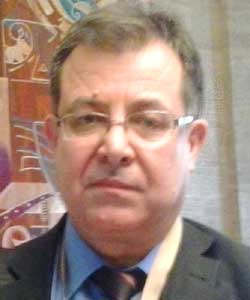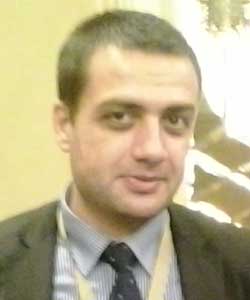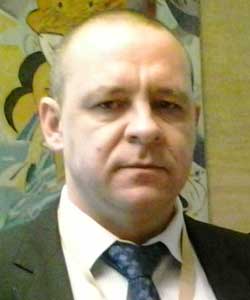An international conference in relation to the sustainable future of tobacco with the participation of world famous experts from the tobacco industry, scientists, professional organizations and tobacco producers has taken place in Sofia. One of the most innovative ideas came from head of the Agricultural Academy prof. Dr. Hristo Bozukov:
 "In general, just 30 percent of the tobacco plant is used. The remaining 70% percent consist of seeds, roots, stems. This way some 90 thousand tons of biomass are not used. We decided to check the gas emissions when this biomass burns. Our tests showed the smoke of those stems burn cleaner than pine wood. There is no nicotine in the smoke. Pellets made from these stems contain enough calories and can easily be used for heating. If those 90 thousand tons were used for making pellets, then nearly 9000 families could use them for heating and thus forests would be saved. Just one pellet making machine is enough for a whole town. Pellets can also be sold to provide additional income. A number of entrepreneurs have showed interest in the idea, but our goal is not entrepreneurs but tobacco growers to receive revenues from all this. On the other hand, this is also about using a renewable energy source."
"In general, just 30 percent of the tobacco plant is used. The remaining 70% percent consist of seeds, roots, stems. This way some 90 thousand tons of biomass are not used. We decided to check the gas emissions when this biomass burns. Our tests showed the smoke of those stems burn cleaner than pine wood. There is no nicotine in the smoke. Pellets made from these stems contain enough calories and can easily be used for heating. If those 90 thousand tons were used for making pellets, then nearly 9000 families could use them for heating and thus forests would be saved. Just one pellet making machine is enough for a whole town. Pellets can also be sold to provide additional income. A number of entrepreneurs have showed interest in the idea, but our goal is not entrepreneurs but tobacco growers to receive revenues from all this. On the other hand, this is also about using a renewable energy source."
 What is the sustainable future of tobacco? More from state expert in the Ministry of Agriculture and Food Georgi Ralchev:
What is the sustainable future of tobacco? More from state expert in the Ministry of Agriculture and Food Georgi Ralchev:
"It is important for all producers to know that tobacco is not in the list of subsidies in the new programming period of the EU. But there are a number of options to producers. Tobacco is not subject to EU funding but national financing is provided. A number of tobacco growers have also diversified their activities and in addition to tobacco they have livestock in order to receive funding. The Rural Development program also offers a number of opportunities. It is important to point out that tobacco production will not be financed by the EU. All funds in the period by 2020 are provided in order for tobacco growers to be able to diversify their production. If we want to protect tobacco growing in the country, production must meet market demand and the market requires high quality. Neighbouring countries also produce oriental tobacco and unfortunately Bulgarian tobacco is not superior in terms of quality and price. "
 The important role of professional organizations was pointed out during the conference. More from Tsvetan Filev, Chairman of the National Tobacco Growers Association:
The important role of professional organizations was pointed out during the conference. More from Tsvetan Filev, Chairman of the National Tobacco Growers Association:
"There are some 400 thousand tobacco growers in the EU and half of them live and work in Bulgaria. These are small-scale, poor farmers. How can a small tobacco grower compete with the marketing of a powerful multinational company? So, the point here is to create producers' organizations. If producers from a municipality united and behind them stood some 300 - 500 tons of tobacco, then traders would have different attitude.”
English: Alexander Markov
It is extremely concerning that the largest company in Bulgaria, Lukoil Neftohim, which is part of the country's critical infrastructure, is still in the hands of a country that has declared Bulgaria a hostile state. This opinion was shared by energy..
“The divergence between the monetary and the fiscal policy pursued by the government continues to be the main reason why Bulgaria does not meet all criteria yet for entering the Eurozone,” Lyubomir Karimansky, member of the Governing Council of the..
Germany remains Bulgaria's strongest economic partner. Trade between the two countries for 2024 amounts to EUR 12 billion, said Tim Kurth, President of the German-Bulgarian Chamber of Industry and Commerce. At a ceremony held at the University of..

+359 2 9336 661
